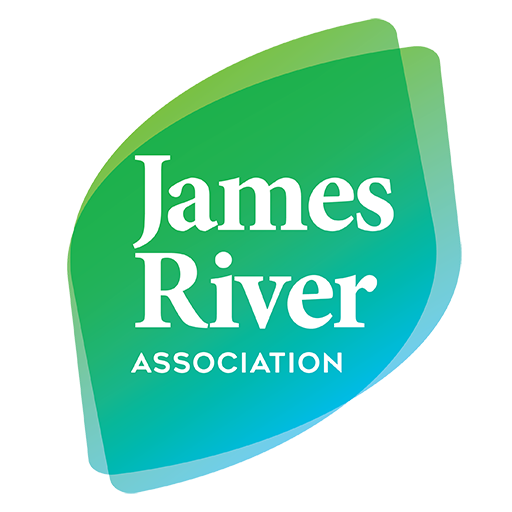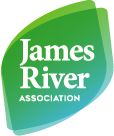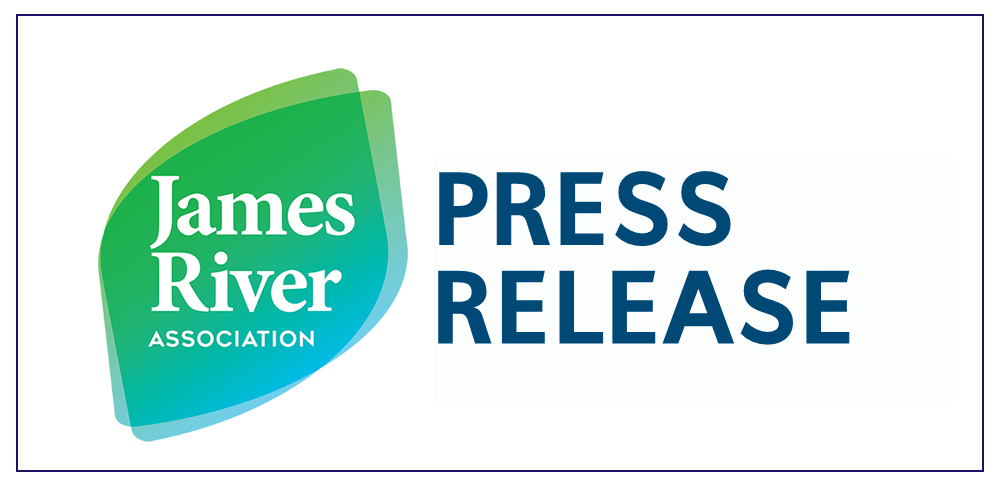PRESS RELEASE
FOR IMMEDIATE RELEASE:
February 1, 2021
CONTACT:
Nat Draper, Senior Education Manager, James River Association
ndraper@thejamesriver.org | 804.267.9236
Erin Hillert, Marketing & Communications Manager, James River Association
ehillert@thejamesriver.org | 608.239.2644
The James River Association Finds New Ways to Educate RPS Environmental Science Students
Funding is provided by the EPA’s Environmental Education Local Grants Program
The James River Association (JRA) recently launched a brand new semester of partnership with Richmond Public Schools (RPS) to educate high school environmental science students on Richmond’s largest contributor to degraded water quality, stormwater runoff pollution, thanks to an Environmental Protection Agency (EPA) 2020 Environmental Education Local Grant. JRA’s grant was one of only three awarded for Region 3 (covering Delaware, Maryland, Pennsylvania, Virginia, West Virginia and the District of Columbia) and the only award made in Virginia. Across the country, this national program awarded 35 grants totaling $3,250,000.
JRA’s goal in their Connecting High School Environmental Science Students to the James River program is to engage Richmond public high school students in awareness, knowledge, critical thinking, problem solving, decision making, action, and stewardship in relation to the issues of stormwater runoff and combined sewer systems (CSS). The program includes a partnership with Richmond’s Department of Public Utilities (DPU) and their outreach staff in order to increase public awareness and knowledge about stormwater runoff and the CSS. This is an important and highly relevant topic for RPS students since Richmond is one of only three communities in Virginia that have a CSS and that it causes raw sewage to be discharged into the river during big rain events. Richmond has been working for over 20 years to address this issue and has eliminated over 90% of overflows.
This program engages RPS students – a population that is 65.6% economically disadvantaged, 85.8% minority, and 99.8% eligible for free and reduced lunch – and empowers these students with the knowledge, skills, and sense of community stewardship necessary to make informed decisions and to take responsible actions as it relates to their natural environment and the James River. Originally the grant supported in-person lessons, field experiences at Richmond’s newly improved and innovative wastewater treatment plant, and educational boat trips on the James. Due to the global pandemic, JRA shifted course and has worked with RPS and DPU staff to create interactive virtual curriculum that seeks to replicate the field experiences, conducting five virtual lessons with each RPS high school environmental science class, including topics like “Effects of Land Cover & Soils in Watersheds” and “Modeling Improvements to My School Yard”.
Through virtual learning, JRA has introduced students to sophisticated online tools like Stroud Water Research Center’s Model My Watershed, in which students analyzed watershed data of their school location and ran model simulations on how a variety of factors, for example installing rain gardens or planting trees on school grounds, could impact water quality. JRA educators also utilized programs like Google Drive’s Jamboard to engage students in interactive, two-way learning.
“This generous grant funding from the EPA has enabled JRA to provide RPS students with a unique learning opportunity. Interactive, online tools and live streaming from the field have been critical for education in a virtual Covid-19 world,” said Nat Draper, JRA Senior Education Manager. “We’re having a wonderful experience engaging environmental science students despite the limitations caused by the pandemic, and I truly believe that RPS students and teachers have enjoyed their lessons and gained a greater understanding on how urban areas like Richmond impact the health and ecosystem of the James River.”
JRA staff also conducted a Virtual Environmental Career Expo this past semester, which will be replicated for the spring semester. “We had more than 200 students attend our first virtual career expo with RPS under the EPA grant and it went really well” said Charles Johnson, JRA Senior Environmental Educator. “Students were able to attend three sessions with a choice of six diverse STEM professionals. Our career expo gave the students the opportunity to explore entry-level jobs and career opportunities, meet prospective employers, and practice professional behavior. I am looking forward to hosting our second career expo on March 31st.”
The 2021 spring semester will continue efforts introduced during the fall 2020 semester, as RPS and other school systems move forward through another semester of uncertainty and unknowns. JRA is grateful for the partnership and opportunity to reach Richmond high school students and educate not only on environmental science but the importance of river conservation, planting the seed for a lifelong connection and appreciation of natural resources.
To learn more about JRA’s education programs and to check out their virtual learning resources, visit https://thejamesriver.org/students-of-the-james/.

ABOUT THE JAMES RIVER ASSOCIATION: The James River Association is a member-supported nonprofit organization founded in 1976 to serve as a guardian and voice for the James River. Throughout the James River’s 10,000-square mile watershed, the James River Association works toward its vision of a fully healthy James River supporting thriving communities. The James River Association believes that “when you change the James, the James changes you”. With offices in Lynchburg, Richmond, Williamsburg, and Scottsville, the James River Association is committed to protecting the James River and connecting people to it. For more information visit www.thejamesriver.org.

